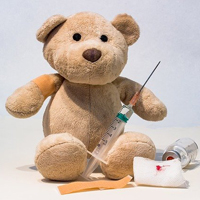Prevalence and patterns of adverse events following immunisation among children less than 24 months attending immunisation clinics in Kano, Nigeria

All claims expressed in this article are solely those of the authors and do not necessarily represent those of their affiliated organizations, or those of the publisher, the editors and the reviewers. Any product that may be evaluated in this article or claim that may be made by its manufacturer is not guaranteed or endorsed by the publisher.
Authors
Adverse Events Following Immunisation (AEFI) contribute to child morbidity and mortality as they often lead to low uptake of vaccines with consequent persistence of vaccine-preventable diseases. It is essential to assess the prevalence of AEFIs in northern Nigeria, where misconceptions about immunisation exist. This study assessed the prevalence and pattern of AEFI among children less than 24 months after attending immunisation clinics in Kano, Nigeria. Using a mixed-methods design, adapted intervieweradministered questionnaires were assigned to a cross-section of 384 mother-baby pairs who presented to the immunisation clinics of selected primary healthcare centres (PHCs) within metropolitan Kano. This was followed by six sessions of focus group discussion with a sub-sample of the mothers. Logistic regression and the framework approach were used to analyse the data. The prevalence of AEFI was (43.5%, n=164), and most cases (72.4%, n=273) were mild. Fever was the most common type of AEFI reported (66.5%, n=109) and was higher among infants less than three months (44.5%, n=73). Age of the index child was the only significant predictor of AEFI (OR:0.18, 95% CI: 0.10-0.35). Our study shows that AEFI was common among children less than 24 months old in Kano. We recommend sensitisation and health education of caregivers using valuable communication strategies and sufficient training of immunisation service providers on professional ways to deliver these vaccines safely.
How to Cite

This work is licensed under a Creative Commons Attribution-NonCommercial 4.0 International License.






